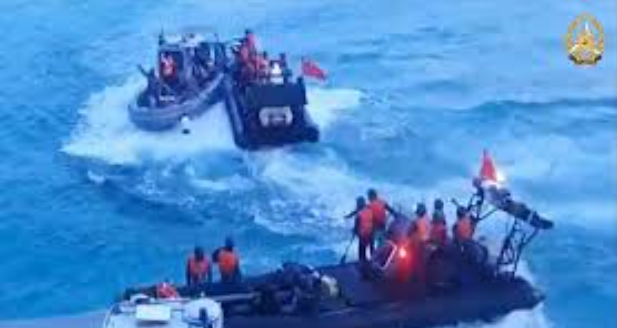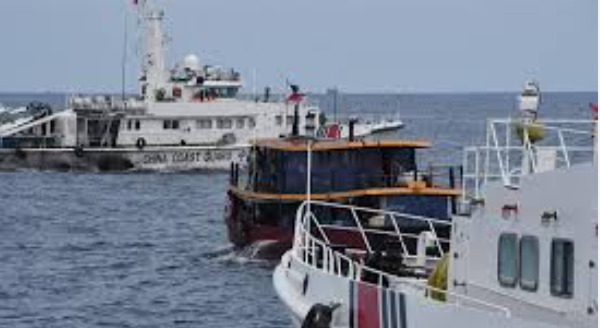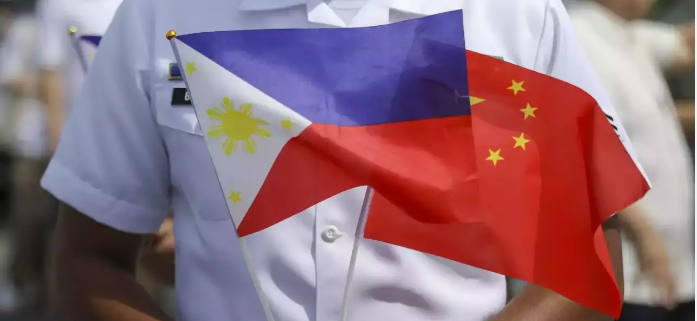Beijing Warns Manila of ‘Resolute’ Response in South China Sea:-
Beijing Warns Manila in a recent escalation of tensions in the South China Sea, Beijing has issued a stern warning to Manila, cautioning against provocative actions and emphasizing that any attempts to challenge China’s territorial claims will be met with a resolute response. This development has heightened concerns over the stability of the region, where multiple countries have overlapping claims and strategic interests.
Historical Context of the South China Sea Dispute
The South China Sea is a critical maritime region that has long been a focal point of geopolitical tensions. It is not only a vital corridor for global shipping, carrying about one-third of the world’s maritime traffic, but it also holds significant reserves of oil and natural gas. The primary claimants in this region include China, the Philippines, Vietnam, Malaysia, Brunei, and Taiwan. China’s expansive claims, demarcated by the so-called “Nine-Dash Line,” cover nearly 90% of the South China Sea, overlapping with the exclusive economic zones (EEZs) of several Southeast Asian nations.
The Philippines has been one of the most vocal challengers of China’s claims, securing a landmark ruling in 2016 from the Permanent Court of Arbitration in The Hague, which invalidated China’s extensive claims. Despite this, China has continued to assert its dominance through the construction of artificial islands and the militarization of these features.  for more information click on this link
for more information click on this link
Recent Developments and Escalations
The latest tensions have been sparked by increased maritime activities and military presence from both sides. The Philippines has reported frequent incursions by Chinese vessels into its EEZ, particularly around the disputed Spratly Islands and Scarborough Shoal. In response, the Philippine government has strengthened its patrols and increased its diplomatic efforts to rally international support against China’s actions.
China, on the other hand, has maintained that its activities are legitimate and within its sovereign rights. The Chinese government has accused the Philippines of infringing upon its territory and warned against any actions that could destabilize the region.
Beijing’s Warning to Manila
In a recent statement, the Chinese Ministry of Foreign Affairs issued a direct warning to Manila, emphasizing that China would take all necessary measures to safeguard its sovereignty and maritime rights. The statement highlighted China’s historical claims to the South China Sea and accused the Philippines of engaging in illegal and provocative activities.
“We urge the Philippine side to immediately stop its infringing activities and provocative actions. China will respond resolutely to any threats to our sovereignty and security,” the ministry declared. This message underscores Beijing’s unwavering stance and its readiness to defend its claims through diplomatic, economic, and potentially military means.
Manila’s Response and Strategic Calculations
The Philippine government, led by President Ferdinand Marcos Jr., has responded with a mix of defiance and calls for international solidarity. Manila has reiterated its commitment to defending its territorial integrity and has sought to bolster its alliances, particularly with the United States and other regional partners.
President Marcos has called for increased joint patrols and military cooperation with the U.S., invoking the Mutual Defense Treaty between the two nations. The Philippines has also engaged in diplomatic efforts to garner support from ASEAN member states and other international actors, emphasizing the importance of upholding international law and the 2016 arbitration ruling.
Regional and Global Implications
The escalating tensions between China and the Philippines have significant implications for regional stability and global geopolitics. The South China Sea is a crucial arena where the strategic interests of major powers intersect, and any conflict here could have far-reaching consequences.  for more information click on this link
for more information click on this link
Impact on ASEAN
The Association of Southeast Asian Nations (ASEAN) plays a critical role in managing regional disputes and fostering dialogue. However, the divergent interests and varying degrees of economic dependence on China among ASEAN members have made it challenging to present a unified front. Some member states, like Vietnam and Malaysia, share concerns similar to those of the Philippines, while others are more inclined to maintain strong economic ties with China.
The ongoing tensions could either galvanize ASEAN to take a more assertive stance or further expose the divisions within the bloc. Enhanced cooperation and collective security measures, such as the proposed ASEAN-China Code of Conduct for the South China Sea, will be crucial in managing the dispute and preventing escalation.
U.S. and Allied Responses
The United States has been a key player in the South China Sea dispute, advocating for freedom of navigation and opposing unilateral actions that threaten regional stability. The U.S. has conducted regular freedom of navigation operations (FONOPs) and has increased military cooperation with regional allies and partners.
In response to China’s warning to Manila, the U.S. has reaffirmed its commitment to the defense of the Philippines under the Mutual Defense Beijing Warns Manila Treaty. Secretary of State Antony Blinken stated, “Any armed attack on Philippine forces, aircraft, or public vessels in the South China Sea would invoke U.S. mutual defense commitments.”
Other allies, including Japan, Australia, and the United Kingdom, have also expressed support for the Philippines and emphasized the importance of adhering to international law. The Quad, comprising the U.S., Japan, Beijing Warns Manila Australia, and India, has called for a free and open Indo-Pacific, implicitly challenging China’s expansive claims.
Economic and Environmental Consequences
The South China Sea is not only a strategic military arena but also an economic and ecological hotspot. The region’s rich marine biodiversity and significant fishery resources are vital for the livelihoods of millions of people in Southeast Asia. Beijing Warns Manila Overfishing, habitat destruction due to artificial island building, and potential oil and gas exploration pose severe environmental risks.
The ongoing dispute and militarization of the region could further exacerbate these issues, leading to overexploitation and environmental degradation. Collaborative efforts to manage and protect the South China Sea’s resources are essential to ensure sustainable development and ecological balance.
Diplomatic Efforts and the Path Forward
The resolution of the South China Sea dispute requires sustained diplomatic efforts, adherence to international law, and a commitment to peaceful dialogue. Key measures include:  for more information click on this link
for more information click on this link
- Strengthening Multilateral Frameworks:
- ASEAN and China should expedite the finalization and implementation of the Code of Conduct for the South China Sea, ensuring it is binding and effective in preventing conflicts.
- Regional forums like the East Asia Summit and the ASEAN Regional Forum can facilitate dialogue and confidence-building measures among the claimant states.
- Enhancing U.S.-Philippine Alliance:
- The U.S. and the Philippines should continue to enhance their military cooperation, including joint patrols, capacity-building, and intelligence sharing.
- Diplomatic efforts should focus on reinforcing the Mutual Defense Treaty and ensuring clear communication and coordination in response to potential threats.
- Engaging China Constructively:
- Dialogue with China should remain open, with efforts to find common ground on issues like environmental protection, fisheries management, and humanitarian assistance.
- Confidence-building measures, such as joint exercises and crisis communication mechanisms, can help reduce the risk of accidental conflicts.
- International Support and Legal Frameworks:
- The international community should continue to support the 2016 arbitration ruling and advocate for the peaceful resolution of disputes based on international law, particularly the United Nations Convention on the Law of the Sea (UNCLOS).
- Efforts to mediate and facilitate dialogue, involving countries like Japan, Beijing Warns Manila Australia, and the European Union, can contribute to a more stable and cooperative regional environment.
Conclusion
The South China Sea dispute remains one of the most challenging and complex geopolitical issues of our time. Beijing’s warning to Manila highlights the persistent and escalating nature of the tensions in the region. As the Philippines navigates this challenging landscape, Beijing Warns Manila the role of diplomacy, international law, and strategic alliances will be crucial in preventing conflict and ensuring stability.
The path forward requires a delicate balance of assertiveness and restraint, Beijing Warns Manila cooperation and competition, and the unwavering commitment of the international community to uphold the principles of peace and justice. Only through sustained efforts and a collective commitment to dialogue and cooperation can the South China Sea become a region of peace, stability, and shared prosperity. ALSO READ:- Blinken Meets Wang, Flags China’s Actions Surrounding Taiwan 2024




